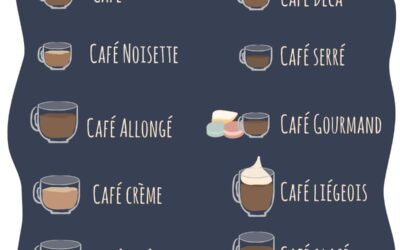You may think you know the basics, but I bet there are certain ones that will you up. After 10 years in France, even I still sometimes get caught on the rules of saying hello in French.
I imagine you already know that if you are visiting France, you should say “Bonjour” if you walk into a French store or a restaurant before you demand something. It is only polite to say hello to the shopkeeper or waiter, even if you are a tourist.
But if you are living in France, it gets more complicated than that when it comes to greeting someone. Bonjour is the tip of the iceberg. There is a full greeting that goes on, with various degrees depending on how well you know the person.
1. Bonjour!
The generic “Good day”, that is most commonly used. A rather safe bet, if you are not sure what to say.
If you are walking into a shop or restaurant in France and want to be served, start with a Bonjour, even if you don’t speak French. Your interaction with that person will improve immensely.
2. Bonsoir!
The evening version, meaning “Good evening”. It is usually used after sunset, but even the French have varying opinions of when they should switch from saying “bonjour” to “bonsoir”!
3. Bonne Soirée!
Also means “Good Evening”, but is not a greeting, but an end to the evening.
4. Bonne Nuit!
Literally translates to “Good Night”, and is not a greeting, but an end to the night.
5. Salut!
A rather informal Bonjour, the equivalent of “Hi” in English. It is a greeting among friends and people you know. (Do not walk into a store and say Salut!). It can also be used to say hello and goodbye when leaving.
6. Coucou!
A very informal Bonjour, usually only to children. It is also used in between women who are very good friends. Originally meant as the English version of Peek-a-boo for young children, Coucou has grown beyond that initial sentiment. Pronounced “Coo-coo”, it is the sound of a birdcall in a forest. Or rather, a cuckoo clock. You can read more about the Coucou here.

7. Allo!
The French version of “Hello”, which is usually said on the telephone. (You can also use Bonjour.). The letter “H” is not pronounced in French, which is why it comes out as “allo” instead of “hello”.
8. Jourbon
Jourbon is verlan slang, which is a type of French slang where the alphabet order is reversed. It is “jour” (meaning “day”) put in front of “bon” (meaning “good”) to reverse the order of “bonjour“.

9. Ça va?
This is the quick way to say “How are you?” The standard response to this is “Ça va. Et toi?” meaning “Fine, and you?”
This is among the many other informal ways of saying hello in French, without saying Bonjour. Most of these only used among friends.
10. Quoi de neuf ?
Quoi de neuf is also quite informal to say “What’s new?” It is a bit more slang than Ça va, but it still works in most situations. The typical response here is “Rien. Et toi?” meaning “Nothing, and you?”
11. Tout va bien?
There is a bit more concern behind this question, as in “How is everything? Is everything alright?” The typical response here is “Oui, et toi ? ” meaning “Yes, and you?”
12. Ça roule?
A very informal one to say to your equivalent counterpart: “Everything rolling along?” As above, the typical response here is “Oui, et toi ? ” Yes, and you?
13. Bienvenue!
Quite a formal one here to say “Welcome!” The best response here is “Merci Beaucoup” or thank you.
14. Je m’appelle.
Another very formal one to just say your name with a name, “Je m’appelle Nassie, and give a firm nod and handshake . A nice response to this “Enchanté ! ” or “delighted to meet you!”
The Bises (Cheek Kisses)
This may sound easy enough, but along with the greeting, there is an added complication: the bises. Depending on how well you know the person, you also have to add the French “cheek kisses” to every greeting.
The common thing that trips people up are whether or not you should go in for the bises. In general, if you identify as female or LGBT, you should do the bises to family, friends, and other people you meet in an informal setting.
If both are males, they generally go in for the handshake, unless they are good friends. French people spend a lot of time at work, so that has slipped in there with the bises as well.
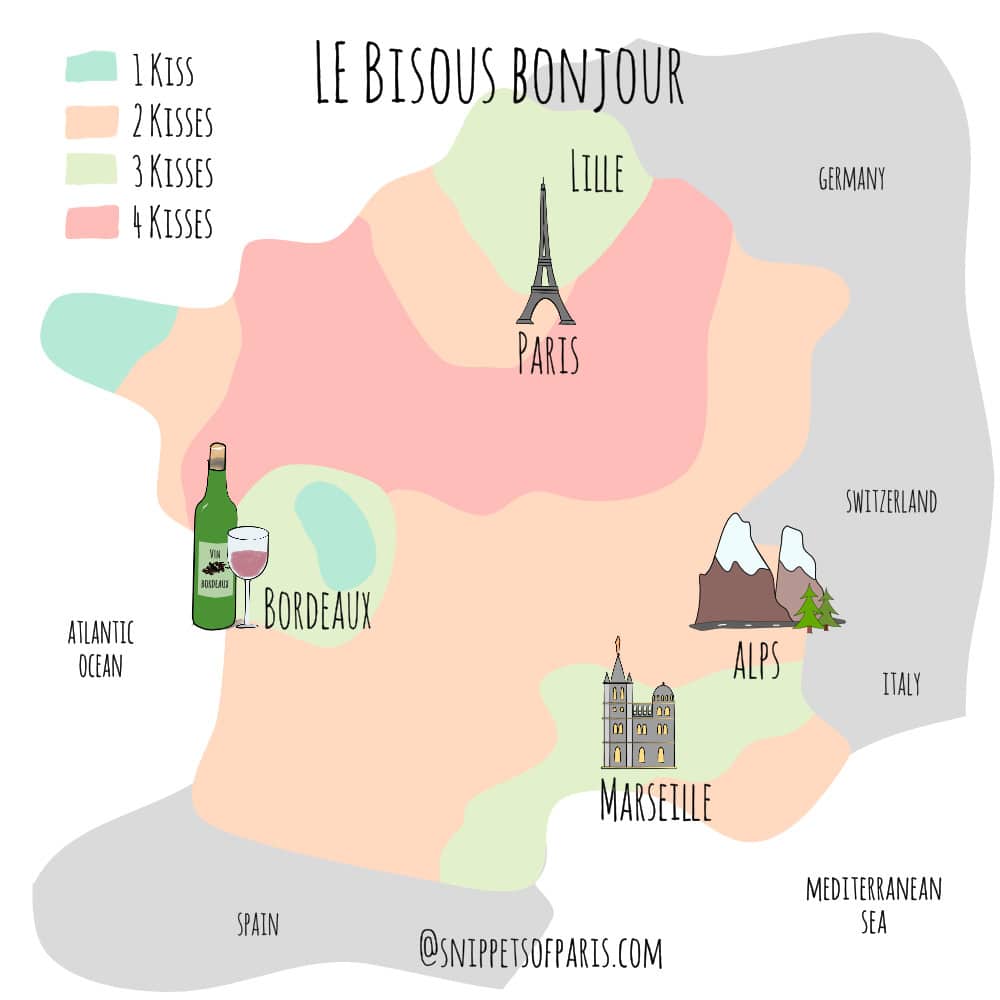
This also should take into account that people in different parts of France do anywhere from 2-4 kisses. Parisians do 2 cheek kisses, but the Marseillais do 3.
It all gets quite complicated, even for the French! You can read more about la bise here.
The Importance of Bonjour
If this sounds like a lot of rules to saying Bonjour, take heart. French people will appreciate that the effort was being made, rather than nit-pick about whether you said Bonsoir when it was time to say Bonjour. (Unless you try to hug them. Hugging is strange in France.)
French society tends to be more formal than in North America. It goes back to the Royal courts at Versailles where a strict code of conduct was enforced that everybody from the nobility to the servants had to follow.
And as the English saying goes: You catch a lot more flies with honey, than vinegar. A little politesse goes a long way.
Quiz
So if you take all that into account, it is time to take the quiz. Here is a list of normal situations that you might encounter every day in France. Keep track of your scores so that you can see how did.
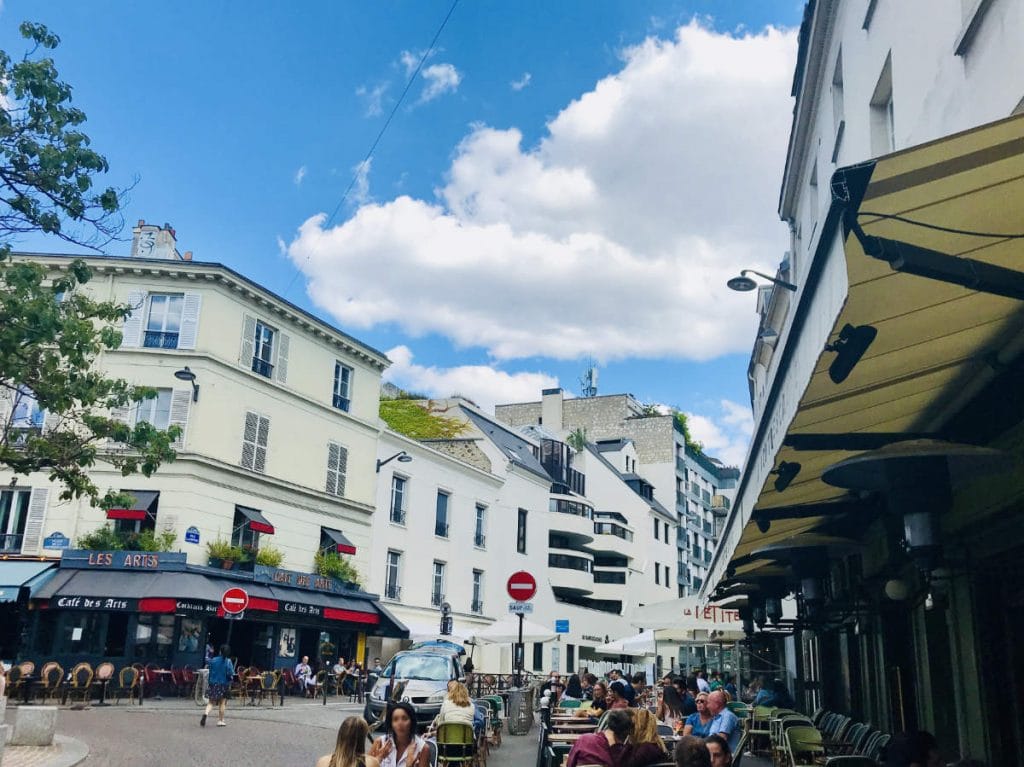
1. You are a woman, and you arrive at an apéro party where you meet a lot of people for the first time. Do you?
- a) Say a general bonjour to the crowd and wave.
- b) Greet each person individually with a bonjour and shake hands.
- c) Greet each person individually with a bonjour and do the bises (cheek kisses).
- d) Greet each person individually with a bonjour and give a hug.
2. You meet a friend’s new girlfriend for the first time. Do you?
- a) Say Bonjour and do the bises (cheek kisses).
- b) Say Coucou and shake hands.
- c) Say Salut and go for a hug.
- d) Say hello and wave.
3. You are a straight man and you are meeting a (male) good friend for a drink. Do you?
- a) Say Coucou, and do the bises.
- b) Say Salut, and do the bises.
- c) Say Bonjour and hug.
- d) Say hi and start discussing beers.
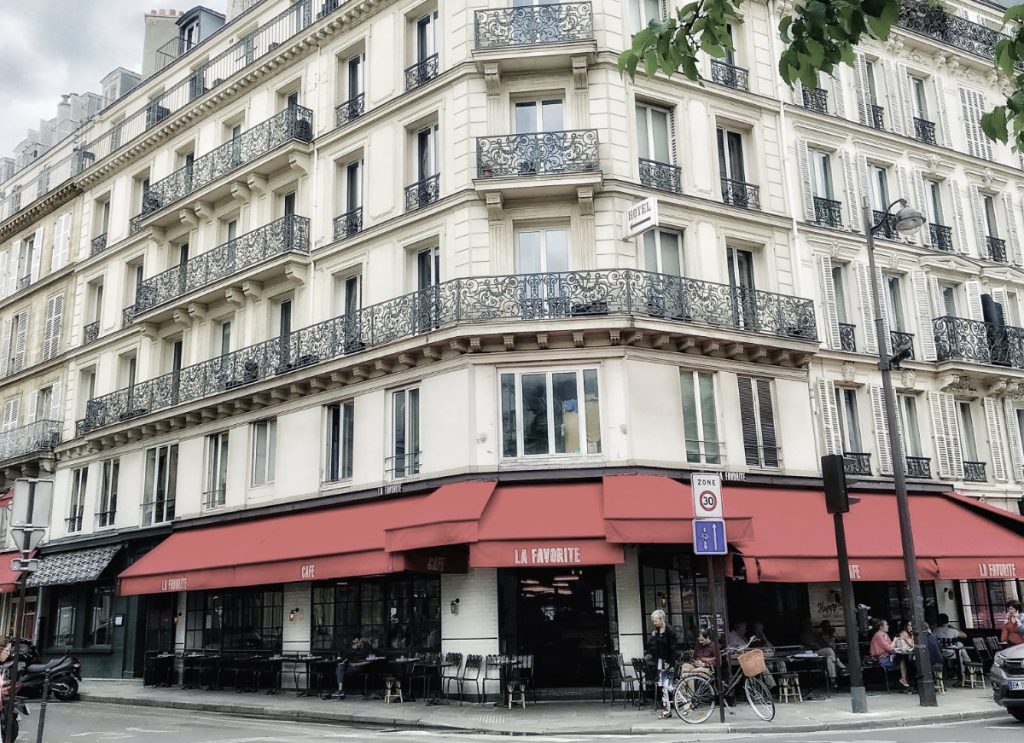
4. You have been chatting with someone on Tinder, and you meet them on a first date. Do you?
- a) Bonjour, and go in for a hug.
- b) Bonjour, and go in for the bises (cheek kisses).
- c) Bonjour, and kiss on the mouth.
- d) Bonjour, and shake hands.
5. It is 5pm and you walk into your kids’ school to pick them up. What do you say to their teacher?
- a) Bonjour!
- b) Bonsoir!
- c) Coucou and do the bises.
- d) I don’t know.
6. You greet your kids at 5pm after school. What do you say to them?
- a) Bonjour!
- b) Bonsoir!
- c) Coucou and do the bises.
- d) I don’t know.

7. You arrive at work in the morning, in a traditional French office. Do you?
- a) Wave Bonjour to all your coworkers in the open space.
- b) Greet each coworker individually with a Bonjour and a handshake.
- c) Greet each coworker individually with a Bonjour and a handshake, with the bises for those women that you know well.
- d) Send an email Bonjour to everyone.
8. You see your boss across the street and wave hello! Do you?
- a) Say Bonjour!
- b) Say Salut!
- c) Say Coucou!
- d) Any of the above.
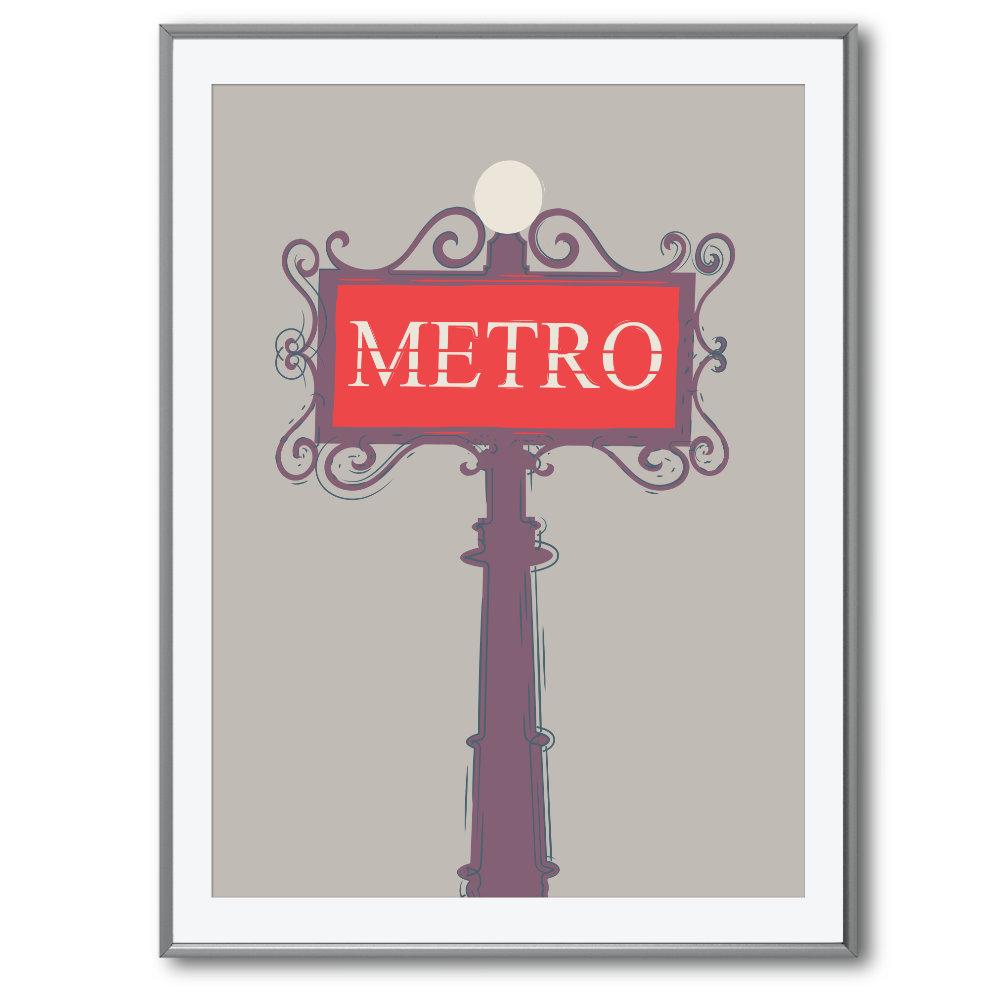
9. You see someone you know on the metro, and then see them 1/2 hour later at work. Do you?
- a) Say Bonjour again.
- b) Say Allo.
- c) Say Rebonjour.
- d) Say Coucou.
10. You are a woman and you meet your significant other’s parents for the first time. Do you?
- a) Say bonjour and shake hands.
- b) Say bonjour and do the bises.
- c) Say coucou and do the bises.
- d) Say bonjour and wave.
11. You are staying with your inlaws for a 3-day weekend. Do you?
- a) Say Bonjour and do the bises when you arrive.
- b) Say Bonjour and do the bises every morning of your trip (including when you arrive).
- c) Say Bonjour when you arrive, and do the bises at the end of the weekend as you are leaving.
- d) Say Bonjour and drink lots of wine all weekend long.
12. You are female, and are leaving a dinner party. Do you?
- a) Wave everyone Au Revoir and head out the door.
- b) Say Au Revoir to each person, and do the bises to each person.
- c) Say Au Revoir to each person, and hug each person.
- d) Say Bonne Soirée and blow a few kisses as you head out.

☞ READ MORE: 21 ways to say Goodbye in French (for every occasion)
So how did you do? It can be a bit confusing, right!? Welcome to France!
For more fun, don’t forget to check out our other quizzes and check out our other resources to learn French. A bientôt!



